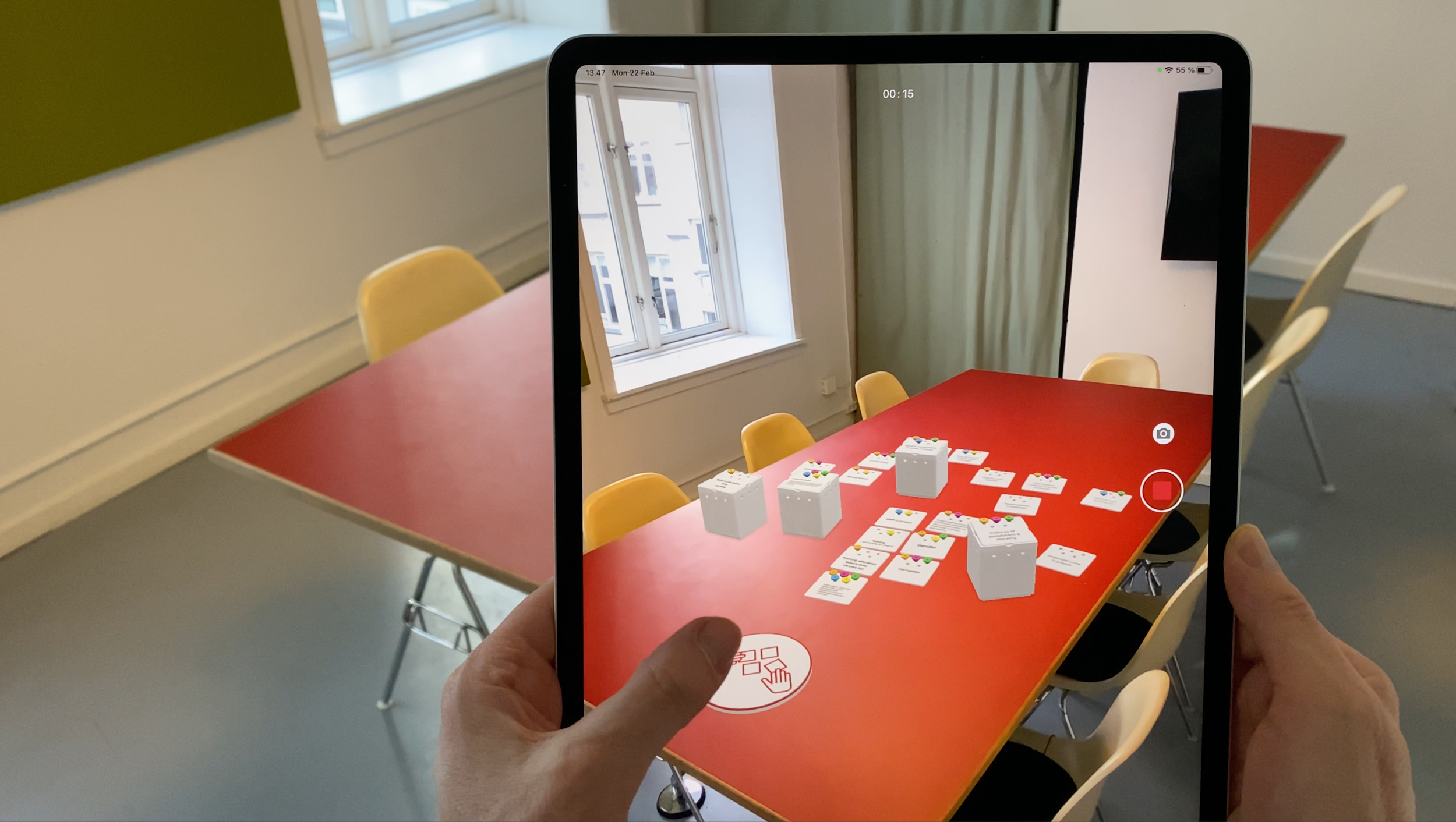
CoNavigator AR – create editable ‘virtual memory palaces’ of your sessions.
Virtually revisit your sessions – any time, any place
Once you have completed your physical CoNavigator sessions, we can convert and ‘record’ your experiences into an Augmented reality space. You can then move around your CoNavigator session’s topography wherever you are, using an iOS device and freely downloadable software. You can even record videos of the virtual visits so that they can be used in presentations and meetings.
Explore how the process evolves in a session
By animating the different steps of a session being played out, researchers can better explore the evolution and development of the session’s outcomes, months after a session has taken place. By walking around the virtual topography, the contextual experiences of each participant can be better understood, by viewing the session from that person’s visual perspective. Audio recordings of the day’s session can also be embedded into the topography.
Add layers of information, media and resources
The augmented reality CoNavigator space can act as kind of memory palace, where you can add new forms of knowledge and information to the space. View abstracts to relevant papers, show prototypes of a product as it develops, include external links to papers or even embed audio or video recordings to present or explain a topic further.. Share the virtual space to anyone with a link or QR code.
Keep on collaborating
By embedding links to other digital collaboration tools, the virtual CoNavigator space can be used as a focal point for teams of researchers or developers to collaborate – especially in longer-term projects. Tiles and cards can link to shared Google Docs, link to a collaborative channel or thread on Slack, connect to Zoom, Microsoft Teams and many other tools which teams use to collaborate. You can even join up two separate CoNavigator sessions to create a “master” topography.
Watch a short demonstration of how the new CoNavigator AR function works.




